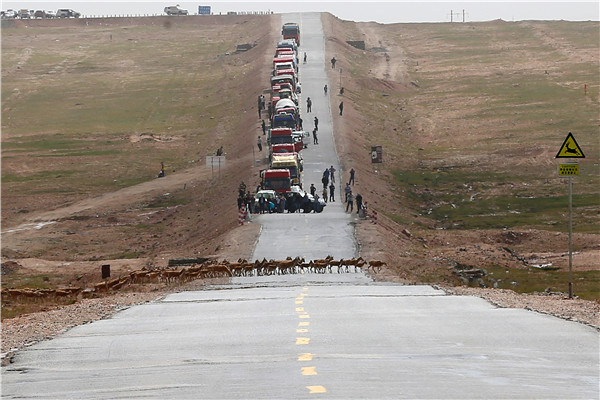Wild lives with wildlife
 |
|
Hoh Xil nature reserve officers stop traffic while Tibetan antelope cross the highway during their migrations on the Qinghai-Tibet Plateau. [Photo by Wang Zhuangfei/China Daily] |
All 12 of his colleagues found the living conditions and harsh natural environment difficult. They lived in tents and abandoned military barracks. Many quit during those years, Zhan recalls.
He considered it. A job in the city would be easier.
But his persistence developed into a profound relationship with the wild animals.
"I'd cry if I had to change jobs now," he says.
They didn't have access to phones. His only contact with his family was through letters.
Zhan would ask drivers passing through to post them as a favor. He'd write several identical copies in hopes at least one would reach his loved ones.
Zhan's responsibilities have remained essentially the same over the decades.
He and his colleagues patrol the vast prairies. They inspect vehicles on the roads and suspicious off-road tracks to determine if they belong to the vehicles of poachers or illegal miners. The workload was heavier in the early years, he says. His first patrol lasted 45 days.
"It was one patrol after another," he recalls.
"I didn't have more than three days to rest a month."














